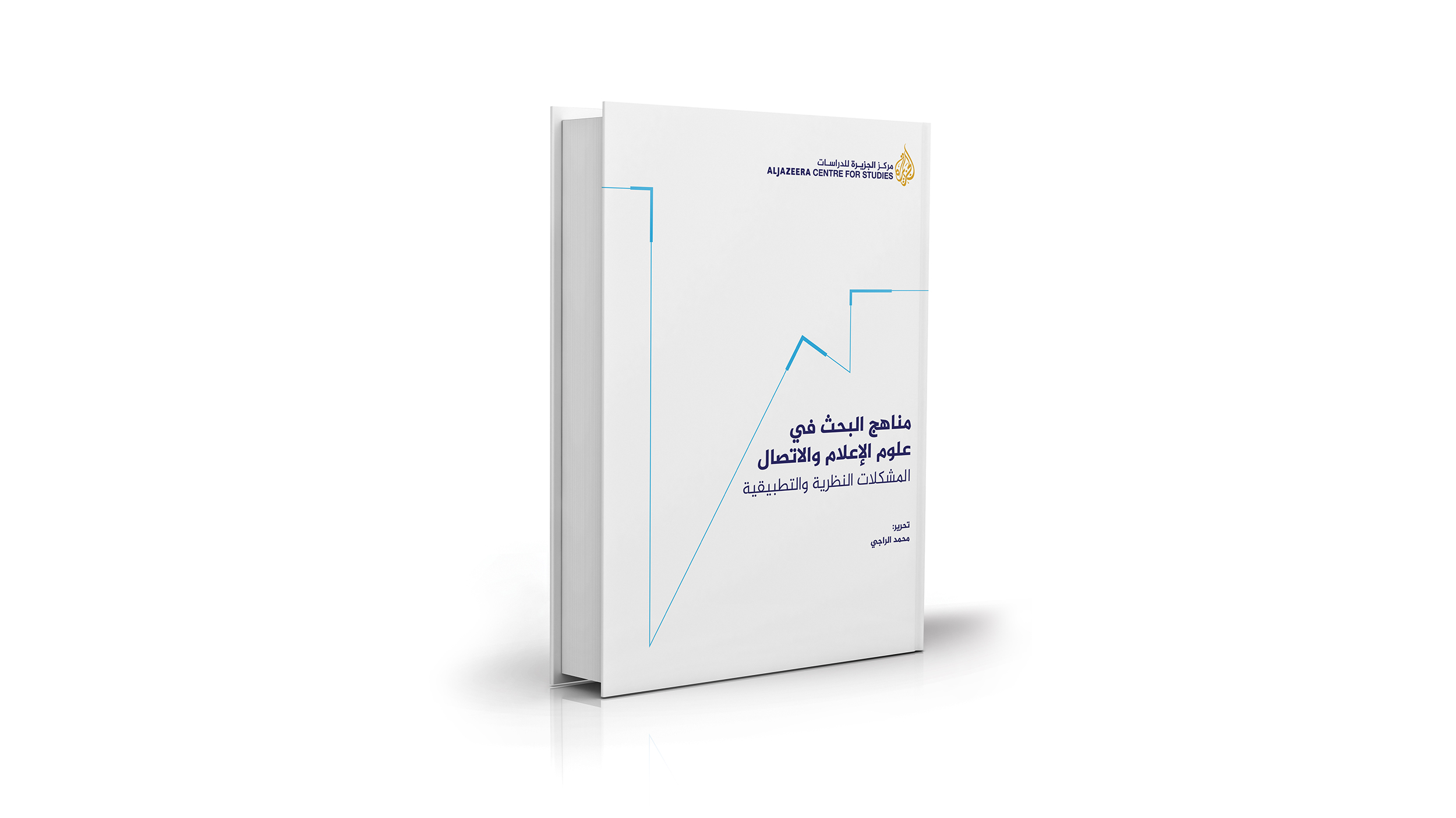
Al Jazeera Centre for Studies has released a new book entitled Manahij al-Bahth fi ‘Uloom al-I’lam wa al-Itisal: Al-Mushkilat an-Nadhariya wa at-Tatbiqiya [Research Methods in Communication and Media Studies: Theoretical and Applied Problems]. The book contains a variety of scientific research presented at the web conference that the centre held on 8 and 9 December 2021 under the title, "Theoretical and Applied Problems of Research Methods in Communication and Media Studies."
Edited by Mohammed Erraji, a researcher at Al Jazeera Centre for Studies specialising in media studies, the book examines the theoretical and applied problems of research methods in communication and media studies as one of the fundamental issues facing the development of media knowledge in the Arab academic and research fields. These problems have caused cognitive stagnation in the field of Arab media studies and a failure to understand and interpret media phenomena in their social, cultural, political and economic contexts.
The book also explores the challenges facing research methods in communication and media studies in Arab universities, including, for example, the dominance of descriptive comparison and discursive construction, the tendency to generalise, and the reduction of media research to quantitative studies that do not result in the accumulation of theoretical knowledge.
In addition, the book discusses the absence of policies and research visions, and the lack of laboratories and research teams that embrace research work, invest in its findings, and try to reap its practical benefits.
Similarly, Manahij al-Bahth fi ‘Uloom al-I’lam wa al-Itisal sheds light on the poor scientific training of graduate students and its negative impact on the research they conduct. It also addresses the problems faced by university professors that negatively affect their ability to graduate students and researchers with distinguished research skills, including the burden of teaching and administrative work.
In aims of providing a solution, the book touches on the importance of integrating quantitative and qualitative studies, and the necessity of developing research methods used in digital media. It also reviews problematic issues related to the selection of topics, methodologies and research tools, as well as the inability of researchers to epistemologically break from their preconceived ideas while dealing with research topics, which then results in a functional defect in findings and undermines their credibility and objectivity.
As it attends to the importance of justifying the methodology used in choosing the research topic and providing evidence of its suitability, the book emphasises the relevance of the research problem and the ability of the researcher's chosen methodology to address issues that align with the progress made in the field of information and communication technology. It also emphasises the importance of applying research ethics in media and communication studies, and the significance of subjecting them to scientific review and examination using software that measures academic integrity.
Moreover, the book calls attention to the importance of studying the fundamental problems facing Arab media institutions; and the need to formulate visions that contribute to the advancement of the Arab media industry and economy, develop its institutions, and create strategies to face the challenges that confront it by monitoring the rapid changes in the communication technology and media environment. By the same token, it highlights the importance of employing the outputs of scientific research to develop the Arab media industry and leadership, which requires supporting said institutions for university research, bridging the relationship between them and communication faculties and departments in Arab universities, enhancing the confidence of Arab media institutions in the results of university research, and increasing solid Arab research that addresses the visions of the future of Arab media given the challenges of rapid advances in technology.